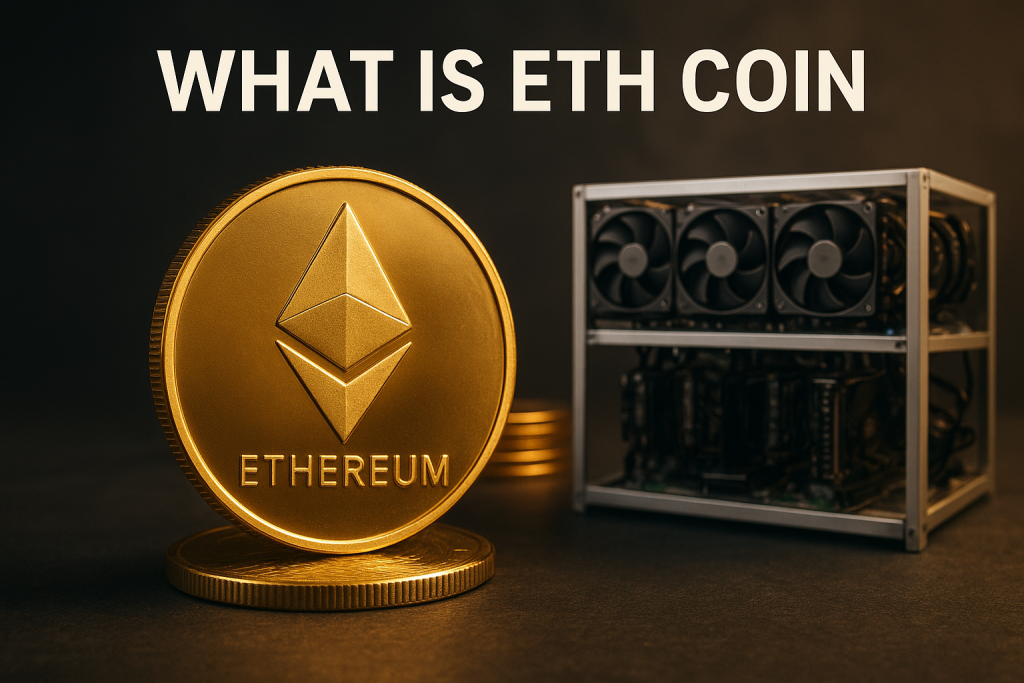Ethereum (ETH) is one of the most popular cryptocurrencies in the world. Unlike Bitcoin, which primarily serves as digital money, Ethereum is a blockchain platform that enables developers to build decentralized applications (DApps). Its native currency, Ether (ETH), powers the network and is used to pay for transactions and computational services.
Understanding Ethereum
Ethereum was launched in 2015 by Vitalik Buterin. It introduced the concept of smart contracts, which are self-executing agreements coded on the blockchain. These contracts automatically enforce rules, making transactions secure and transparent without relying on intermediaries.
Ethereum’s blockchain supports a wide range of applications, including:
- Decentralized Finance (DeFi): Lending, borrowing, and earning interest without banks.
- Non-Fungible Tokens (NFTs): Unique digital assets like art, music, and collectibles.
- Decentralized Apps (DApps): Applications that operate without a central authority.
How Ethereum Works
Ethereum uses a global network of computers (nodes) to validate transactions. The network runs on a system called Proof-of-Stake (PoS), where validators lock up ETH to secure the network. Transactions are recorded on a decentralized ledger, ensuring transparency and immutability.
Ways to Earn Ethereum (ETH)
There are multiple ways to earn Ethereum, ranging from passive methods to active participation in the crypto ecosystem:
1. Staking ETH
With Ethereum’s Proof-of-Stake system, users can stake their ETH in the network to earn rewards. Staking involves locking up your coins to help secure the blockchain, earning interest over time. This is considered one of the safest ways to grow your ETH holdings.
2. Mining (Before PoS)
Before Ethereum switched fully to PoS, miners earned ETH by solving complex cryptographic puzzles. Mining is largely obsolete for personal profit today but may still be relevant for networks running Ethereum forks or other PoW-based coins.
3. Yield Farming & DeFi
Ethereum powers many Decentralized Finance platforms. By lending ETH or providing liquidity, you can earn interest or rewards. Platforms like Aave, Compound, and Uniswap allow users to earn passive income with crypto.
4. Trading ETH
Buying and selling ETH on cryptocurrency exchanges like Binance, Coinbase, or Kraken can generate profits if you know how to read market trends. Trading requires research and risk management.
5. NFTs and Gaming
Ethereum is the backbone of many NFT marketplaces and blockchain games. Creators can mint and sell digital art or in-game assets for ETH. Gamers can earn ETH by participating in play-to-earn games built on Ethereum.
6. Freelancing for ETH
Some platforms pay in ETH for digital work like writing, coding, or design. Websites like Ethlance allow freelancers to get paid directly in Ethereum.
Why Ethereum is Valuable
Ethereum’s value comes from its utility, security, and network effect. Its ability to host smart contracts and decentralized apps makes it indispensable in the crypto ecosystem. As more projects build on Ethereum, demand for ETH increases, driving its value up.
Conclusion
Ethereum is more than just a cryptocurrency—it’s a platform for innovation in finance, art, gaming, and digital contracts. Whether you’re looking to invest, earn, or participate in decentralized networks, Ethereum provides multiple opportunities. From staking ETH to exploring NFTs and DeFi, the ecosystem is vast and growing.


